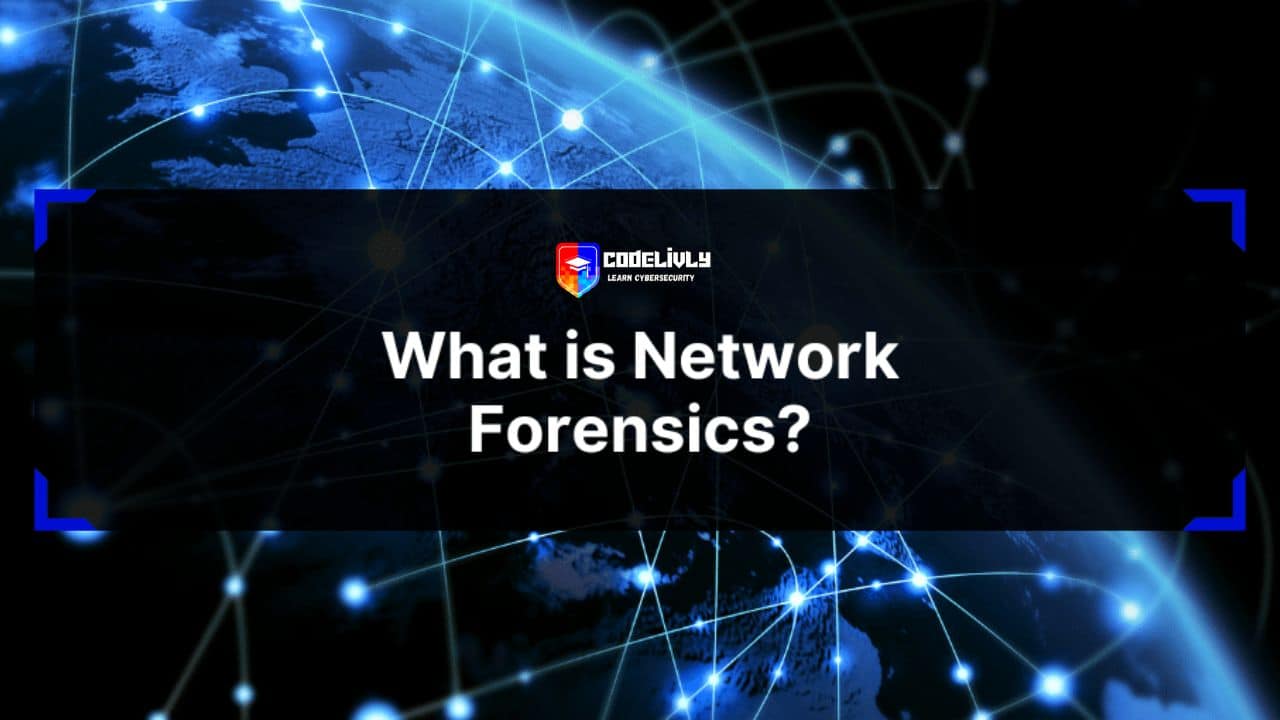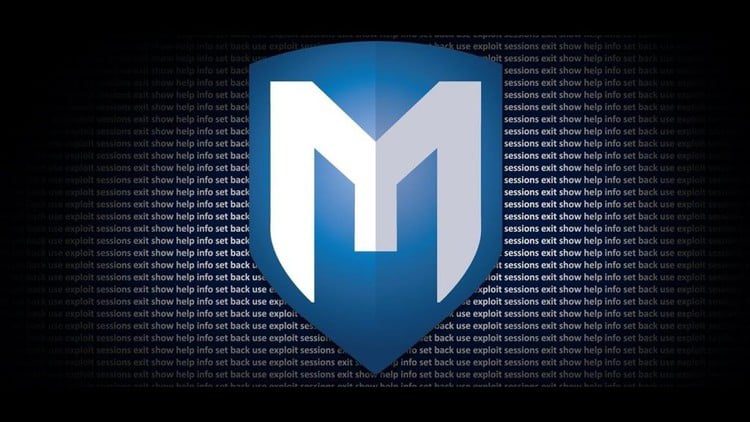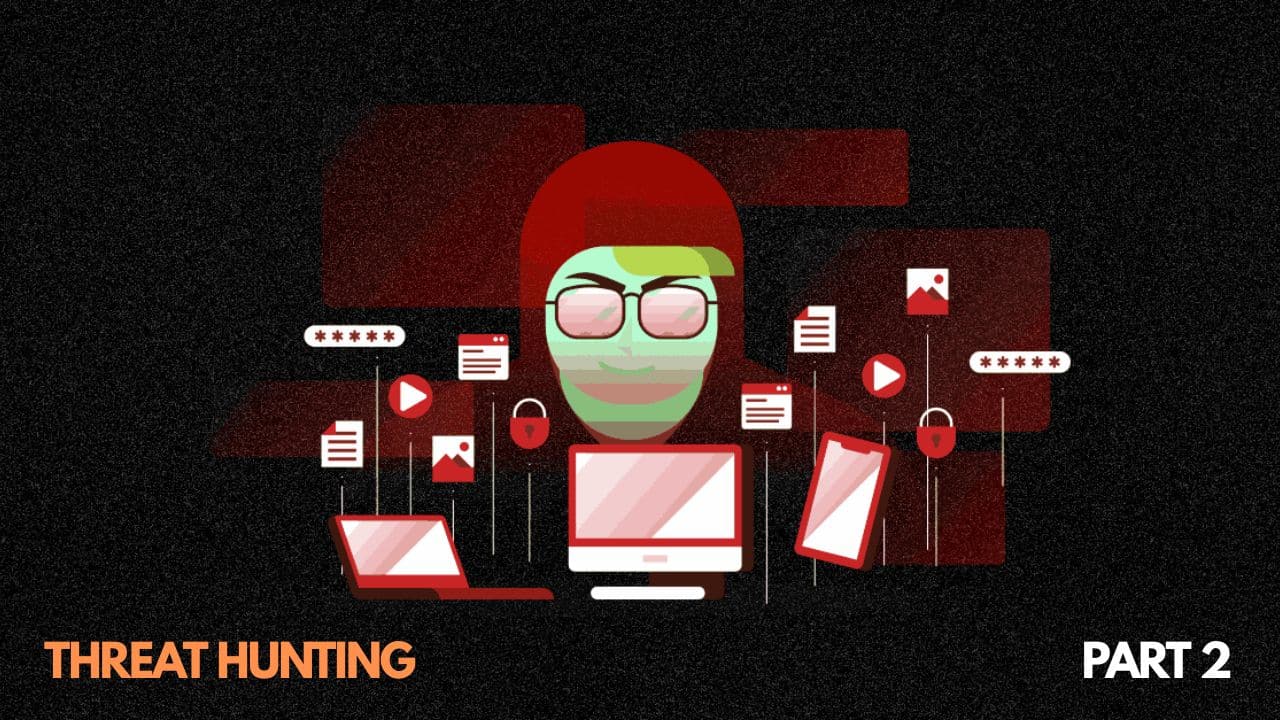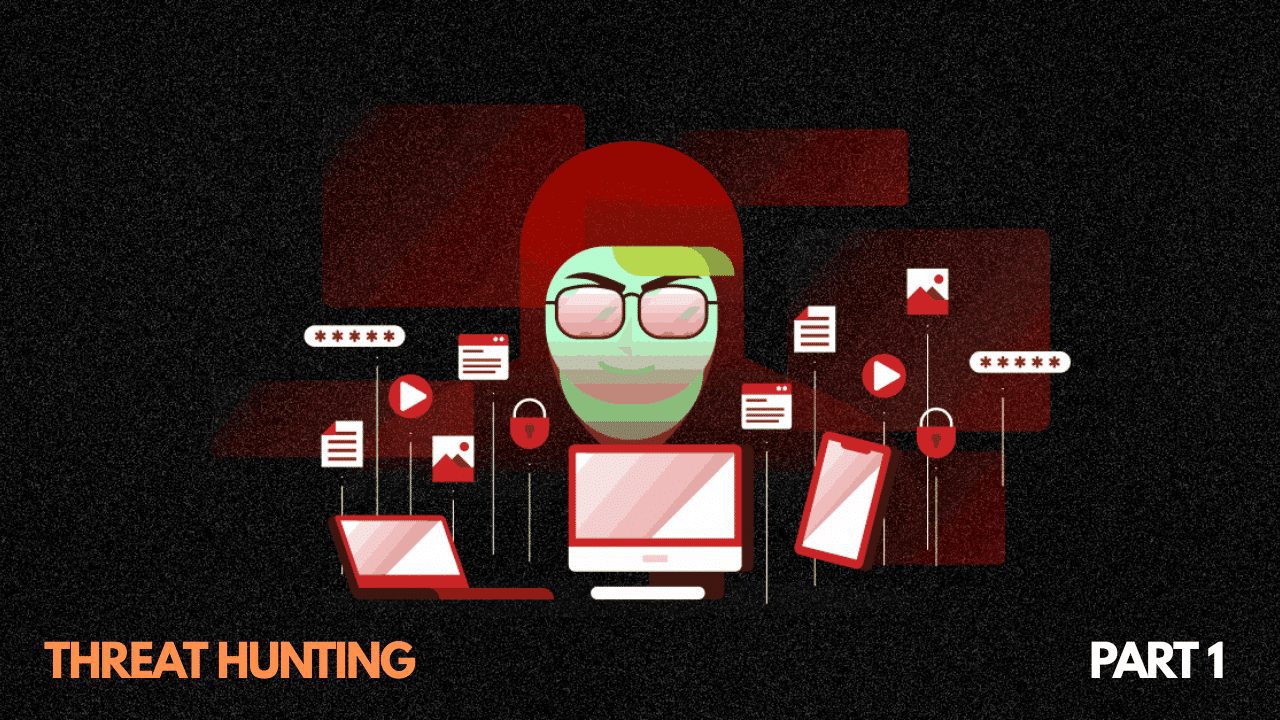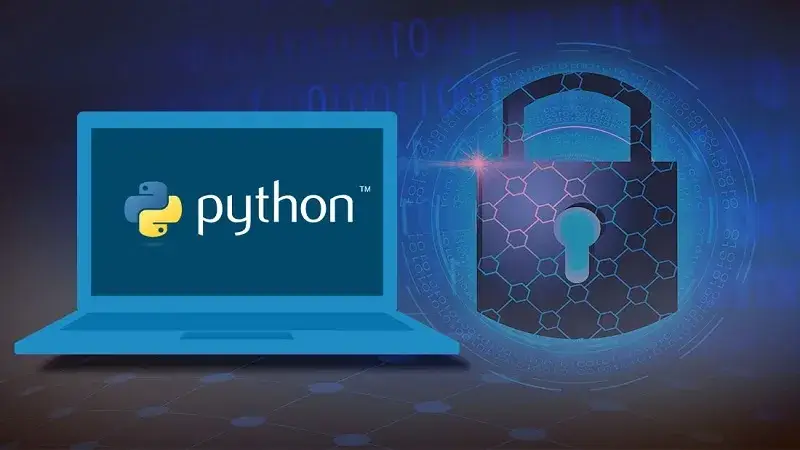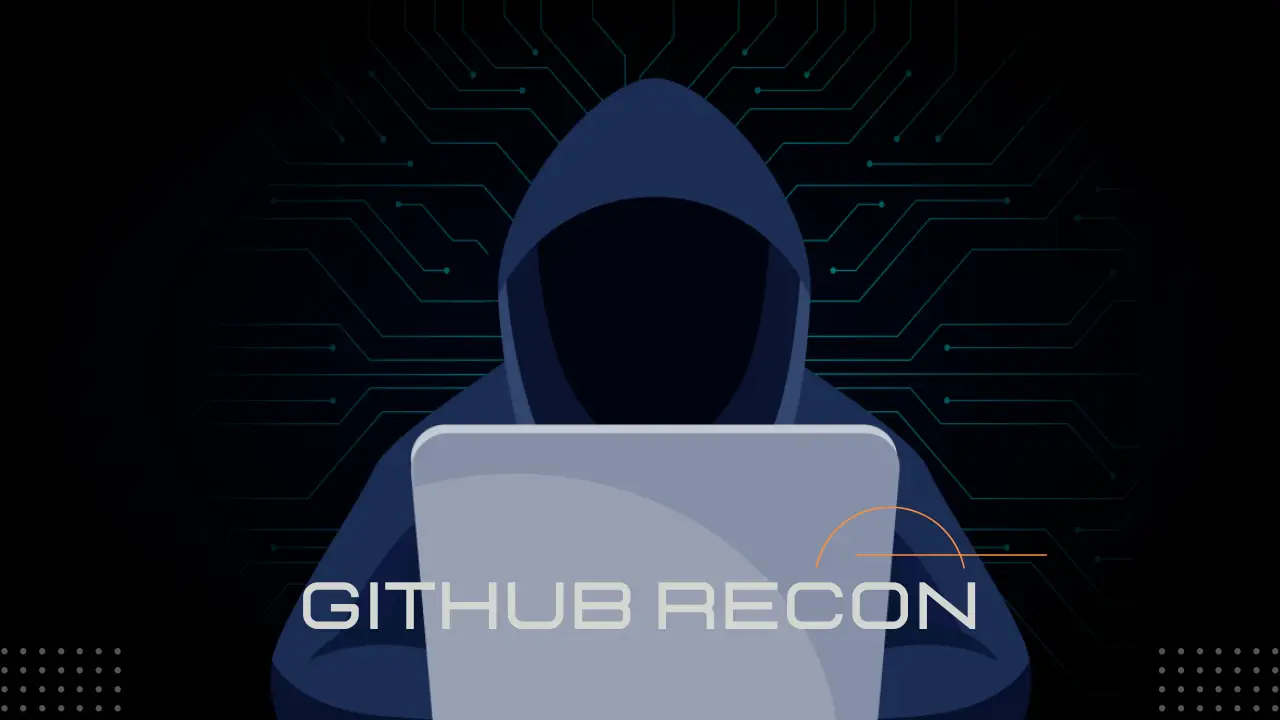Before understanding how to become an ethical hacker, let us understand more about the role.
We can call this era as Cyber Era, Not Because of the Cyber Attacks, but because of its advantages and massive growth of technology,
People showing more enthusiasm toward Hacking & Cyber Security, and there isn’t any single reason behind it,
You might probably watch movies where Hackers are doing a lot of cool stuff like hacking into banks and stealing millions and tracking people, finding out their information
But Wait..!
Hackers are usually different from what you see in the Movies, Some people often judge Hackers as Real Hackers and Fake Hackers
That isn’t a big issue 
By the end of the post, you will get a clear picture of what is Hacking and how you can be a hacker
I came across many people, who often think to be a hacker, they think hacking is just like playing games with the PC but it’s not like that
However people sometimes fall in confusion, they wanted to be a hacker but due to lack of knowledge, they even ask where to start from and how.
If you’re too in the same situation, and you’re too wondering how to be a computer hacker then this post may be good to go with, I will share the step-by-step guide along with my personal experience.
Recommend: Free Ethical Hacking Tutorial For Beginners
What is Hacking?

When some people hear the term “Hacking” they usually think this matrix effects and blindly say this is Hacking,
While others think stealing bank account balance is Hacking, defacing websites is Hacking
Don’t get confused, Hacking is not like what you see in the movies
In reality, it’s quite different
There is no single definition for Hacking, you may find different definitions on the internet
Don’t be confused, let me tell you what hacking is and how to be a computer hacker
In simple words, Computer hacking is a process of getting unauthorized access to any Computer by breaking its security
I mean breaking computer security is Hacking
It can be hacking into digital devices, spreading malware, stealing bank logs and so, it has no particular branch, it has several branches and several types of Hacking,
Related: Top 10 BEST Ethical Hacking Courses For Beginners
Who are Hackers?

Let me explain in simple words
A person can be called as a hacker if he knows how to break the computer security
People often think Hackers are Cybercriminals and some others think Hackers are Cyber Security experts and they will work for Government only
If you’re too thinking the same then you’re wrong..!
Yes, you’re wrong 
But wait.. here is a simple logic you have to understand
All Apples are fruits but all fruits are not Apples
So
Not all Hackers are Cyber Criminals, nor all Hackers are Works for the government
Some people even blindly say Ethical Hackers only work for the Government
If you’re too agree with it?
Of course, may not. but It depends
Let’s see what are the types of Hackers
Recommended Books : Python for the Ethical Hacker: Unleashing the Power of Programming
Types of Hackers
They are mainly of 3 types but are not limited to it
- White Hat Hackers
- Black Hat Hackers
- Grey Hat Hackers
White hat Hackers(Ethical Hacker)
White Hat Hackers also are known as the Ethical Hackers, they are considered as good Hackers they usually Hack to find out the vulnerability in order to improve security, in the other hand they can work for big companies, government organizations, depending on their decisions they may not work for anyone,
They can be Cyber Security experts, Security Auditors, Pentesters, and so on
Black hat Hackers
Black hat Hackers are considered as bad guys, they usually Hack for fun and profit along with a desire to destroy
You may call them Cybercriminals, as they never follow any ethical rules
Grey Hat Hackers
Grey Hat Hackers are those who hack for political issues, they usually deface websites and they leave freedom of speech
Hackvisits
Hackvisits are a group of strongly motivated Hackers, they are maybe good or bad, it depends on their group and their mindset
Hope you have got a clear understanding of what is Hacking and who are Hackers.
Related: What is Hacking? What are the types of Hackers
Why do you want to be an Ethical Hacker?
Guys, If you want to be ethical hackers just for money Because the salary of hackers is very large. Then sorry, this option is not for you. Because no doubt that hackers get a high-salary job. But hacking is not very easy. It is so difficult. no doubt, you can get a high-salary job, but the main thing is learning to hack.
So, If you want to be a hacker for your interest and you knew something about hacking. Then you can easily learn to hack. Because hacking is not easy as shown in movies. You have to work with your full dedication. Then you can become an ethical hacker.
Not learn hacking just for getting a high-salary job. Just learn with your interest. Then nobody can stop you to becoming an ethical hacker or getting a high-salary job.
Let’s see how to become an ethical hacker
Recommended Guides
- What Is The Dark Web? How To Access It And What You Will Discover
- How to be Anonymous – A beginners guide
What is Ethical Hacking?
The term “hacking” has a negative connotation, but that will only be true until the job of an ethical hacker is properly understood. Ethical hackers, often known as “white hat” hackers, are the good guys of the cyber world. So, what does an ethical hacker’s job entail? Rather than using their high computer skills for bad purposes, ethical hackers find flaws in data computer security for businesses and organizations all around the world in order to protect them against hackers with less than ethical motives.
So, let’s explore the skills required to become an ethical hacker.
1. Computer Networking Skills
Networking skills are one of the most important talents to have if you want to be an ethical hacker. The computer network is simply the interconnection of several devices, known as hosts, that are connected via multiple paths to send and receive data or media. Understanding networks such as DHCP, Suoernetting, Subnetting, and others can allow ethical hackers to examine the many interconnected machines in a network, as well as the potential security threats that this may present, as well as how to deal with those threats. Computer Network Tutorials can help you learn about computer networking.
Networking is a broad term, and it can’t be mastered easily, still, you can learn by focusing on one by one topic
Networking contains IP protocols, Proxies, VPN, Tor, and so on
2. Computer Skills
Computer skills refer to the knowledge and abilities required to operate computers and related technology. Data processing, managing computer files, and making presentations are all examples of fundamental computer abilities. Database management, programming, and spreadsheet calculations are examples of advanced computer skills. MS Office, Spreadsheets, Email, Database Management, Social Media, Web, Enterprise Systems, and other computer skills are among the most important. A computer systems specialist is required of an ethical hacker.
3. Linux Skills
The Linux Kernel provides the foundation for a community of open-source Unix-like operating systems. It is a free and open-source operating system, and the source code can be updated and distributed to anybody under the GNU General Public License, whether commercially or noncommercially. The main reason to study Linux as an ethical hacker is that it is more secure than any other operating system in terms of security. This is not to say that Linux is completely secure; it does have viruses, but it is less vulnerable than any other operating system. As a result, no anti-virus software is required.
4. Programming Skills
Programming skills are another important talent to have if you want to be an ethical hacker. So, in the computer world, what exactly does the term programming indicate? “Writing code that a computer system understands to perform multiple instructions” is what it means. As a result, in order to improve one’s programming skills, one must write a great deal of code! Before beginning to write code, one must first determine which programming language is most appropriate for his or her needs. Here’s a summary of the programming languages used by ethical hackers, as well as where you may learn them.
As a hacker, we must have a programming background, as we have to find multiple ways to exploit
If you learn a multi-purpose programming language then you can automate many tasks
Learning programming isn’t a hard thing, but it depends
Firstly I recommend you to start with C Programming, though you can learn Python without the knowledge of C, it’s better to go with C
Also, you have to Master Web programming language,
Learn HTML, JavaScript, PHP & MySQL
These languages are easy to learn, and a hacker must have in-depth knowledge of web applications.
Programming languages that are useful to hacker
5. Basic Hardware Knowledge
Computer hardware includes the central processing unit (CPU), monitor, mouse, keyboard, computer data storage, graphics card, sound card, speakers, and motherboard, among other components. Software, on the other hand, is a set of instructions that may be stored and performed by hardware. Consider the case of trying to hack a computer-controlled machine. First, he must understand the machine’s function. Finally, he must gain access to the machine’s control computer. Now, the computer will have a strong software security system; however, hackers are unconcerned about hardware security, so if he has access to it, he can play with it. How would someone who doesn’t understand hardware understand how the motherboard works, how USBs transport data, how CMOS and BIOS function together, and so on? To become an ethical hacker, one needs also to have a fundamental understanding of hardware.
6. Reverse Engineering
The process of recovering a product’s design, requirement specifications, and functionality from an analysis of its code is known as reverse engineering. It creates a software database and uses it to generate data. The goal of reverse engineering is to speed up maintenance work by making a system more understandable and producing the essential documents for a legacy system. Reverse engineering is commonly used in software security to ensure that the system is free of major security flaws or vulnerabilities. It aids in the development of a system’s strength, hence protecting it from hackers and spyware. Some developers even go as far as hacking their system to identify vulnerabilities – a system referred to as ethical hacking.
7. Cryptography Skills
Cryptography is the study and application of techniques for secure communication while third parties, known as adversaries, are present. It is concerned with the creation and analysis of protocols that prohibit harmful third parties from accessing information shared between two entities, therefore conforming to many principles of information security. Cryptography is the process of turning plain text into ciphertext, a non-readable form that is incomprehensible to hackers, while it is being transmitted. An ethical hacker must ensure that information between different members of the organization is kept private.
8. Database Skills
The Database Management System (DBMS) is at the heart of all database creation and management. Because accessing a database containing all of the company’s data can put the organization at risk, it’s critical to ensure that the software is hack-proof. To assist the organization in building a powerful DBMS, an ethical hacker must have a good understanding of this, as well as different database engines and data structures.
9. Problem-solving Skills
Problem-solving abilities help to identify the root of a problem and find an effective option. Aside from the technical talents listed above, an ethical hacker must also be a critical thinker and a problem solver who can solve problems quickly. They must be eager to learn new techniques and guarantee that all security flaws are thoroughly investigated. This requires a lot of testing and a creative mind for coming up with new approaches to solving problems.
10. Read Books and Online Courses
Most of the Hackers who started their Hacking career are self-learned, but in addition to their knowledge, one must keep reading and learning from various sources
You can start reading Beginner Books, also you can take online courses too
11. Set up Vulnerable labs and practice
I recommend you to start learning yourself and challenge yourself
Vulnerable labs are great options for testing your knowledge and here is an awesome guide on vulnerable labs set up by infoseinstitute
I highly recommend you to try with
These vulnerable web applications help you to master OWASP Top 10 Vulnerabilities
12. Join Bug Bounty Platforms
If you’ve mastered the skills then it’s time to earn your skills
Just join Bug Bounty Platforms such as hackerone and BugCrowd
You can explore many bug Bounty programs just choose as you like, and earn money by finding vulnerabilities.
13. Keep updating yourself
Hacking is a long time journey of learning, we must not enter just to hack wifi password or to hack someone’s phone,
As time goes by there are new vulnerabilities discovered and patched, thus we must be eager to learn new things
My last Pro tip, Always try to learn from Public Disclosures & POCs
Hope you like this article, share this article with your friends, and you can leave a comment if you have any doubts
Other skills
In addition to programming skills, a good hacker should also have the following skills:
- Know how to use the internet and search engines effectively to gather information.
- Get a Linux-based operating system and know the basic commands that every Linux user should know.
- Practice makes perfect, A skilled hacker should put in long hours and contribute positively to the hacker community. He or she can help by writing open-source software, answering queries on hacking communities, and so on.
What is the Attraction of an Ethical Hacking Career?
A career in ethical hacking can be attractive if you’re a professional who enjoys the pleasures of the computer world and lives on a challenge. You have the potential to put your skills to good use by breaking into computer systems and being paid well for it. It is not simple to break into the sector, as it is with many others, but if you put in the effort at the outset, you will be able to carve out a highly profitable career for yourself. Ethical hackers, on the other hand, are always on the right side of the law!
Let us learn how to become an ethical hacker after looking into the stages in the career of an ethical hacker.
What Are the Stages of a Career in Ethical Hacking?
If you want to continue a career as an ethical hacker, you’ll need to develop patience. You can’t expect to get a high-ranking job and great pay right away, but there is a lot of potentials to do both in a short period of time!
1. Starting Out
Many ethical hackers begin their careers by getting a bachelor’s degree in computer science. You can also get an A+ certification (CompTIA), which requires passing two additional tests. These exams assess a person’s understanding of computer components as well as their ability to remove and reassemble a computer.
You must have at least 500 hours of practical computing experience to take the test for the qualification. You may expect to make an average of $44,000 per year at this stage of your career. However, you must earn experience and obtain a Network+ or CCNA certification before you can advance in your career. The Network+ certification verifies fundamental network expertise, such as network management, maintenance, installation, and troubleshooting. The CCNA certification provides the same abilities and focuses on fundamental skills.
2. Network Support
After you’ve earned your certification, you can move on to the next level of your career, network support. Monitoring and updating, installing security programs, and testing for weaknesses are all things you’ll do here. Your goal should be to get a position as a network engineer after gaining expertise in the field of network security.
3. Network Engineer
You can expect to earn between $60,000 and $65,000 after getting experience in network support. Instead of only supporting networks, you’ll now be designing and planning them. From now on, you should focus on the security part of your journey to becoming an ethical hacker. Now is the time to work on security certification, such as Security+, CISSP, or TICSA, for example. The US Department of Defense has accepted the Security+ accreditation, which covers testing on important issues like access control, identity management, and cryptography.
The CISSP is a globally recognized security certification that verifies risk management, cloud computing, and application development skills. The TICSA qualification testing covers the same topics and is aimed at the same level of security knowledge. This experience, along with your accreditation, should be enough to help you take a job in information security.
4. Working in Information Security
This is a big step toward being an ethical hacker because you’re dealing with information security for the first time! This position pays an average of $69,000 per year. An information security analyst analyzes the security of a system or network, responds to security breaches, and works to implement security solutions. To obtain hands-on experience with some of the tools of the trade, you should focus on penetration testing for this profession.
You should aim for a Certified Ethical Hacker (CEH) certification from the International Council of Electronic Commerce Consultants at this point in your career (the EC Council). The instruction you receive will cover all you need to know to become a responsible and efficient hacker. You’ll be engaged in a hands-on environment where you’ll be guided through the process of hacking into a network and finding any security problems. You can begin selling yourself as a professional ethical hacker once you have obtained this certification.
Let us learn how to become an ethical hacker after understanding what are the expectations of the job.
Certifications For Ethical Hackers
While certifications do not determine aptitude or ability, they do assist in showing your knowledge and skill to others. A certification like Certified Ethical Hacker (CEH) is certainly beneficial, even if you don’t have much work experience. CEH is a neutral credential, and CEH-certified ethical hackers are in great demand in general. A CEH-certified ethical hacker earns roughly $88,000 per year, according to PayScale. Aside from CEH, there are a few more notable certifications that demonstrate your skill as an ethical hacker, such as:
- SANS GIAC certification
- Certified Vulnerability Assessor (CVA)
- Certified Professional Ethical Hacker (CPEN)
- Certified Penetration Testing Engineer (CPTE)
For now, let’s discuss CEH certification
How to become an Ethical Hacker: About CEH Exam

The CEH certification is a multiple-choice exam that evaluates your understanding of the penetration testing structure and the tools that are utilized inside it. It gives job seekers in the information security field a head start by ensuring that the certificate holder understands the fundamentals, such as:
- information gathering
- attacking computers or servers
- wireless attacks and social engineering
Objective of CEH
The following are the targets of the CEH exam:
- Inform the public that credentialed individuals meet or exceed the minimum standards
- Establish and govern minimum standards for credentialing professional information security specialists in ethical hacking measures
- Reinforce ethical hacking as a unique and self-regulating profession
Exam Overview
- Exam Name: EC-Council Certified Ethical Hacker
- Exam Duration: 240 Minutes
- Questions in Exam: 125 Questions
- Exam Type: Multiple Choice
- Passing Score(%): 70%
- Exam Registration: Pearson VUE OR ECC Exam Center
Eligibility Criteria for CEH
There are two ways to satisfy the CEH certification exam eligibility requirements:
- Attend Official CEH Training: This can be in any format, e.g., instructor-led training, computer-based training (CBT), or live online training, as long as the program is approved by EC-Council.
- Attempt without Official Training: In order to be considered for the EC-Council certification exam without attending official training, you must: Have two or more years of documented information security experienceRemit a non-refundable eligibility application fee of $100.00Submit completed CEH Exam Eligibility Form including verification from an employer upon approval EC-Council will email you a voucher number to register for the CEH exam
Steps to Becoming a CEH
The information we have already mentioned gives prospective candidates all the information required to plan their future CEH exams. We can summarize the steps needed to get the CEH certification as follows:
- Attend a CEH training course from an accredited EC-Council training center.
- If you have relevant work experience in cybersecurity, you can enroll directly in the exam. Applicants need to submit an eligibility form that costs a non-refundable $100 fee.
2.1. When selecting to enroll in the exam directly, it is advisable to read some resources about the CEH exam. The EC-Council provides many resources for self-study; there are also many books for preparing for the CEH exam. Check the free EC-Council resources page and the official store for courseware and other self-study materials.
- After gaining confidence about your ability to pass the CEH exam, register for the CEH exam, take the test and receive a passing score.
CEH has launched a complement to the CEH certification; it is practical-based and is called CEH Practical. It is a 6-hour practical exam that involves 20 practical challenges. Taking CEH practical certification makes one eligible to continue on the path to getting the CEH Master certification.
Role of an ethical hacker
Ethical hackers can work as freelance consultants, for a firm that specializes in simulated offensive cybersecurity services, or for a company’s website or apps as in-house employees. While all of these positions involve knowledge of current attack methods and tools, the in-house ethical hacker may be required to have in-depth knowledge of only one program or digital asset type.
While in-house red teams are still relatively new in the security business, one advantage they may bring is that they will have a better understanding of how their own systems and applications are built than an independent consultant. This secret information gives the red team an advantage, as long as they can keep their vision from becoming myopic. This advantage would take genuine attackers years to replicate. In-house teams are also regarded to be less expensive than hiring a consulting firm on a long-term basis.
Conversely, a benefit that an external ethical hacker may provide is a fresh set of eyes to identify vulnerabilities that may be overlooked by the internal team. Even organizations that employ an internal red team may occasionally contract an external ethical hacker to provide this fresh look at their defenses.
Before beginning any offensive security actions, any external offensive security service provider should seek written consent from the client. The systems, networks, apps, and websites that will be included in the simulated attack should be specified in this permission. Do not broaden the scope of the service until you have received further explicit authorization.
There are white-box, black-box, and gray-box ethical hacker engagements, which follow the industry’s use of colors to distinguish between various cybersecurity responsibilities and functions. When a security professional is given as much information about the target system and application as possible, it is referred to as a white-box engagement. This enables the simulated assault to search widely and deeply for vulnerabilities that would take a genuinely bad actor a long time to find.
A black-box engagement, on the other hand, is one in which the ethical hacker is not given any insider information. This more closely resembles the circumstances of an actual attack and might give useful insight into how a true attack vector might look. A gray-box engagement, as the name implies, simulates an attack in which the attacker has already breached the perimeter and may have spent time inside the system or application.
Many companies utilize a combination of all three engagement styles, as well as in-house and external ethical hackers. This type of applied knowledge can provide you with the best picture of what defenses you need, but it’s also a lot more expensive.
Many additional security positions benefit from ethical hacker abilities and expertise. Network security analysts and network engineers require these abilities. Purple teams are in urgent need of offensive players. Understanding offensive strategies and tools is beneficial to application security developers. Security researchers, often known as bug hunters, rely heavily on their understanding of attack strategies. Many competent bug hunters have a thorough understanding of the application layer, as well as the network layer and other areas that can be abused.
Start Learning Ethical Hacking on My Own
Recommended Books
1. Hacking for Dummies: The “for dummies” series of Wiley focuses on publishing beginner-friendly books on various topics. This book introduces the user to ethical hacking through concepts and tools. It is very useful for people who want to start learning ethical hacking but are not very comfortable with programming. This should however be understood that being an elite hacker is almost impossible without learning to program.
2. CEHv10 Study Guide by SYBEX: This book is aimed to aid the preparation of CEH(Certified Ethical Hacker), a popular certification course in ethical hacking. It explains the ethical hacking methodology and the phases of it. Each phase of ethical hacking is well explained with details of the concepts and practice on the tools.
3. Hacking, The Art of Exploitation :This book has been very popular in the community of white hat hackers for a long time. Probably because of the content it covers and the depth it goes into. The good thing about this book is that even if you are a novice with absolutely no knowledge about programming and networks, you can still benefit immensely. The book covers Basic Programming in C, Scripting with Bash, basics of memory management in computers, filesystems, overflow based vulnerabilities and their exploitation, basic networking, attacks on networks, writing shell-code, and cryptology.
Popular Online Courses
1. Udemy: These cybersecurity ethical hacking courses have been already taken by many people and their rating is quite good, so we are assuming these will be really useful for your self-learning.
- Learn Ethical Hacking From Scratch
- The Complete Ethical Hacking Course: Beginner to Advanced!
- Hacking in Practice: Certified Ethical Hacking MEGA Course
- Ethical Hacking with Hardware Gadgets
- CompTIA Pentest+ (Ethical Hacking) Course & Practice Exam
2. PentesterLab: PentesterLab is useful for beginners and advanced learners equally. Their beginner-friendly tutorials and labs are from highly successful ethical hackers and bug bounty hunters and they are also well known as instructors and mentors.
3. Pentester Academy: Pentester Academy is a platform of learning for beginners as well as seasoned hackers. They have courses and online labs for major vulnerabilities. Pentester Lab also has courses on programming, forensics, VoIP, DevOps Security, Red/Blue team, etc.
YouTube Channels
1. JackkTutorials: Provides hands-on introductory tutorials to almost all the important concepts, tools, and skills related to ethical hacking.
2. Thenewboston: This channel not only covers the basics of practical ethical hacking but also provides tutorials on programming, app development, graphic design, chemistry, databases, video editing, etc.
3. HackerSploit: Hackersploit is highly popular among bug bounty beginners. It has penetration testing tutorials, CTF walkthroughs, Bug bounty hunting tips, programming tutorials, malware analysis tutorials, steganography tutorials, etc.
LiveOverflow, Nahamsec, Bugcrowd, and HackerOne are also very good and worth checking out.
Websites and Blogs
These websites are useful for staying up to date with recent findings, for getting quick references, for understanding advanced concepts, and more.
1. PortSwigger’s Blog: Dafydd Stuttard is known as portswigger in the hacker community. He is a co-creator of the BurpSuite tool. His blog contains news about the Latest web application vulnerabilities, new features of BurpSuite, tips on how to use BurpSuite well, and his own findings as a bug bounty hunter.
2. TheHackerNews: A dedicated platform for the latest cybersecurity-related news. The Hacker News provides detailed information about the latest vulnerabilities, new developments in the cybersecurity domain, news related to cybercrimes, data breaches, hacktivism, etc.
3. HackerOne Hactivity(disclosed vulnerability reports): HackerOne is a bug bounty platform. Bug bounty programs may allow public disclosure of a vulnerability report after it is resolved. These reports can be used to understand how to look for vulnerabilities on a target, how to perform reconnaissance, how to approach interesting endpoints, how to exploit a vulnerability for maximum impact, and what kind of vulnerabilities are commonly found on a specific type of target.
The second step is practice: Practicing is very important because it will help you absorb the concepts you have learned. It will also help you gain confidence in your skills. Intentionally vulnerable virtual systems and CTFs are the best way to practice. bWApp, DVWA(Damn Vulnerable Web Application), Metasploitable are some of the best vulnerable VMs. The OWASP has put up an index of vulnerable virtual machines, which can be accessed here
Why Do You Want to be an Ethical Hacker?
The ethical hacking field is fascinating, but there are many other reasons behind taking it up as a career. Different people may have varied reasons for joining the ethical hacking niche. Some may choose it for the attractive salary packages, while others may like this job’s challenges. Before discussing the roadmap for ethical hacking, let us discuss the reasons to build a career in this niche.
Growing Opportunities
Regardless of the niche, every organization plans to switch to cloud networks. While some have already started working on the cloud, others will join the wagon. So, you can expect a sudden spike in the job opportunities in this industry. If you have the expertise level required by the organizations, you will never see a lack of options.
Attractive Salary
It is a high-paying profession where you can expect to get around 10 LPA at the beginning itself. As you gain more expertise and get hands-on experience in the field, your salary will keep growing. Furthermore, if you find a job in the defence sector or other public or government organizations, expect to get countless additional perks.
Challenging Industry
There will be new projects and challenges each day, so you will never feel bored or experience monotony at work! In addition, technology changes every day, so you will always have to be on your toes to keep up with the changing trends and deliver the best results. So, if you wish to be active and face new challenges each day, hacking is an ideal option.
Job Security
This industry will only see a rise in demand in the coming years, so choosing ethical hacking can secure your career. Companies will never stop using online networks for improved performance, and they will always need security professionals to help them keep the network safe.
There are countless other reasons to join ethical hacking as a career. All you need to do is take up a professional certification course and gain expertise in the field to deliver the best results to every organization. Moreover, as technology and its features are ever-changing, you should stay updated with the latest trends and keep up with the changing dynamics to prove your worth.
Benefits of Ethical Hacking
A highly desirable and interesting field of IT, ethical hacking is advantageous to both people and businesses. The individuals benefit from excellent salary packages and employment stability, and the businesses hire skilled personnel to handle the security requirements. The following are some advantages of ethical hacking:
- It helps keep the data and the network secured and safe from intruder attacks.
- You can identify the probable risks well on time and prepare your network to avoid the risks.
- Prepare an effective network strategy to help organizations make a smoother transition to cloud networks.
- A professional opting for the ethical hacking profession gets job security for a lifetime as this IT field will expectedly grow in the coming future.
- A qualified expert can expect to get attractive salary packages in this profession.
There are countless other benefits that ethical hacking offers. However, you only ripe all these perks if you are a qualified professional or have hired the best hacker with proven expertise.
What kinds of ethical hacker job roles are available?
While the term “ethical hacker” is a useful umbrella word, actual employment jobs in the field come in a variety of forms. Penetration testers are the most widely advertised employment, however many similar roles are referred to as “security analysts,” “information security consultants,” “network security professionals,” and other terms.
What Can You Expect as an Ethical Hacker?
When you start working as an ethical hacker, you’ll use all of your technical and security skills to try to break into the network security of the company or organization that hired you. The company will want a full analysis of your findings as well as recommendations to improve network security. This effort shields them from hacking attempts by people with malicious or criminal intents. The average salary you can expect as an ethical hacker is $71,000, with bonus payments often amounting to $15,000 – $20,000.
Ethical Hackers Salary
While codelivly is seeing annual salaries as high as $187,500 and as low as $22,500, the majority of Ethical Hacker salaries currently range between $90,500 (25th percentile) to $149,000 (75th percentile) with top earners (90th percentile) making $173,000 annually across the United States. The average pay range for an Ethical Hacker varies greatly (by as much as $58,500), which suggests there may be many opportunities for advancement and increased pay based on skill level, location, and years of experience.
Frequently Asked Question
- Explain what is Ethical Hacking?
Ethical Hacking is when a person is allowed to hack the system with the permission of the product owner to find weaknesses in a system and later fix them.
- What is the difference between an IP address and a Mac address?
IP address: Every device has an IP address allocated to it so that it can be found on the network. In other words, an IP address is similar to a postal address, in that anyone who knows your postal address can write to you.
MAC (Machine Access Control) address: Every network interface on every device is given a MAC address, which is a unique serial number. Only your postal carrier (network router) can identify your Mac address, and you may change it at any moment by getting a new mailbox (network card) and slapping your name (IP address) on it.
- What is the difference between Ethical Hacking and Cybersecurity?
Ethical Hacking is a technique used by ethical hackers to examine a situation and produce a report based on the information collected. Cyber Security is overseen by professionals whose job it is to protect the system from malicious actions and attacks.
- List out some of the common tools used by Ethical hackers?
- Meta Sploit
- Wire Shark
- NMAP
- John The Ripper
- Maltego
- What are the different types of hackers?
The types of hackers:
- Black Hat Hackers or Crackers: Illegally, they hack systems to gain unauthorized access and cause disruptions in operations or steal sensitive data.
- White Hat Hackers or Ethical Hackers: These hackers hack systems and networks for the assessment of potential vulnerabilities or threats legally and with prior permission.
- Grey Box Hackers: They assess the security weakness of a computer system or network without the owner’s permission but bring it to their attention later.
Aside from these three types, there are also other types of miscellaneous hackers.
- What can an ethical hacker do?
An ethical hacker is a computer system and networking expert who systematically attempts to breach a computer framework or network for the benefit of its owners in order to uncover security weaknesses that a malicious hacker could exploit.
- Why is Python utilized for hacking?
The most broadly utilized scripting language for Hackers is Python. Python has some very critical highlights that make it especially valuable for hacking, most importantly, it has some pre-assembled libraries that give some intense functionality.
- Explain what is Brute Force Hack?
Brute force hacking is a method of cracking passwords and gaining access to system and network resources that takes a long time and necessitates a hacker’s knowledge of JavaScripts. The utility “Hydra” can be used for this purpose.
- Explain what is SQL injection?
SQL is a weakness developed in the application code and is one of the techniques used to steal data from organizations. SQL injection occurs when you inject content into a SQL query string and result mode content into a SQL query string, and the outcome changes the syntax of your query in unexpected ways.
- What are the types of computer-based social engineering attacks? Explain what is Phishing?
Computer-based social engineering attacks are
- Phishing
- Baiting
- Online scams
Phishing is a technique that involves imitating a real system by sending fake e-mails, chats, or websites in order to steal information from the original website.
- Mention what are the types of password cracking techniques?
The types of password cracking technique include
- AttackBrute Forcing
- AttacksHybrid
- AttackSyllable
- AttackRule
- Explain what are the types of hacking stages?
The types of hacking stages are
- Gaining AccessEscalating
- PrivilegesExecuting
- ApplicationsHiding
- FilesCovering Tracks
- What is a firewall?
A firewall could be a device that allows/blocks traffic as per outlined set of rules. These are placed on the boundary of trusted and untrusted networks.
- What is data leakage? How will you detect and prevent it?
The term “data leak” knowledge leaves the organization in an unauthorized manner. Data will be leaked in a variety of methods, including emails, prints, computers going missing, illicit data transfers to public portals, portable drives, photos, and so on. There are a variety of controls that can be applied to ensure that information is not leaked. Some of these controls include limiting uploads on websites, following an internal encryption solution, limiting emails to the internal network, restricting the printing of confidential data, and so on.
- What are network protocols, and why are they necessary?
A network protocol is a set of rules that determines how data is transmitted between devices connected to the same network. It simply enables the communication between connected devices without any variations in internal structure, design, or procedures. In digital communications, network protocols are important.
Summary
- Programming skills are essential to becoming an effective hacker.
- Network skills are essential to becoming an effective hacker
- SQL skills are essential to becoming an effective hacker.
- Hacking tools are programs that simplify the process of identifying and exploiting weaknesses in computer systems.
If you liked this article, then please join our telegram channel for More Updates. You can also find us on Twitter and Facebook.
About us: Codelivly is a platform designed to help newbie developer to find the proper guide and connect to training from basics to advance
❤️ If you liked the article, like and subscribe to my channel “Codelivly”.
👍 If you have any questions or if I would like to discuss the described hacking tools in more detail, then write in the comments. Your opinion is very important to me!




